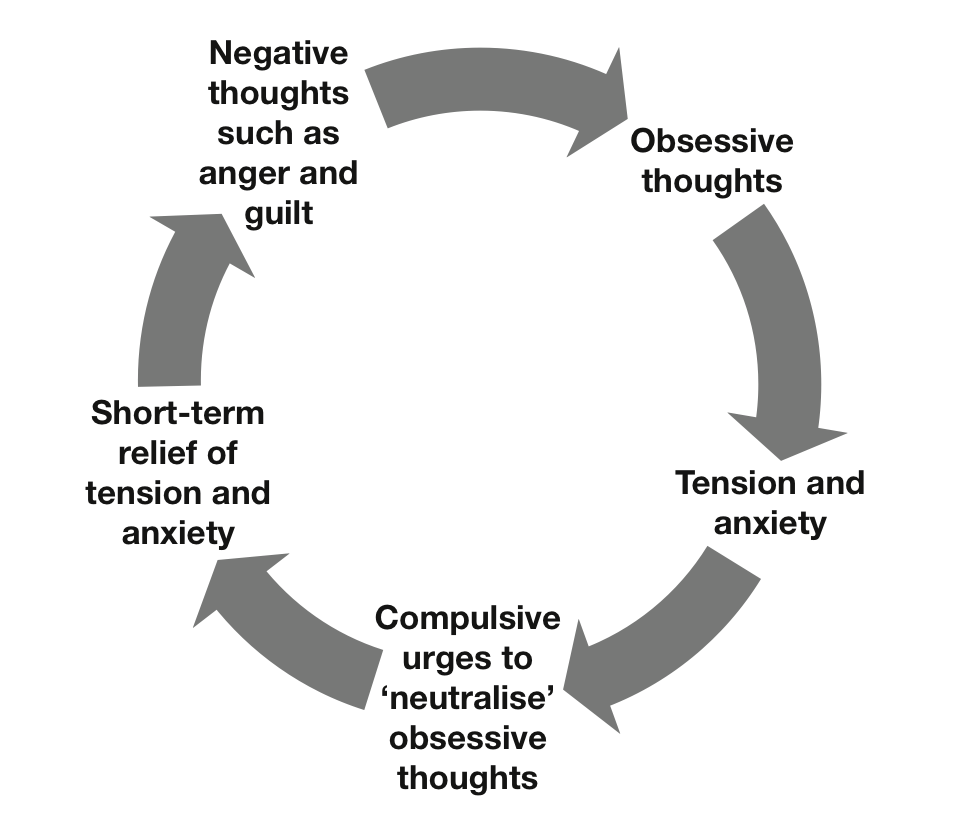Globally, mental health issues are on the rise. They will typically not be entirely gone, but treatment is always really effective. It should be high on the agenda to make it affordable to those in need. It’s normal to have mental health issues. The shame and prejudice individuals face – not only from society, but also from relatives, peers, and employers – are making these issues worse. In this article, we will talk about one of the most common mental health issues- Obsessive-compulsive disorder (OCD).
What is Obsessive-Compulsive Disorder (OCD)?
Obsessive-compulsive disorder (OCD) is a mental illness that creates repeated, unwanted thoughts or obsessions to do something again and again (compulsions). Habits like biting your nails or thinking negative thoughts aren’t OCD. An example of obsessive thought is how some numbers or colors are “good” or “bad.” A compulsive habit could be to wash your hands many times after touching or coming in contact with something that can be dirty. Though you might not like to think or do these things, you feel helpless to stop.

OCD has also been identified as a mental disorder by APA (American Psychiatry Association). OCD is an anxiety condition marked by uncontrollable, intrusive impulses and you feel forced to perform ritualized, repeated activities. If one has been diagnosed with OCD, he/she probably recognizes that his/her obsessive thoughts and compulsive behaviors are irrational—but even so, the person feels unable to resist them and break free. Both obsessions and compulsions are present in most individuals with obsessive-compulsive disorder, but certain people have only one or the other. While it is often seen as a struggle through the taboo eyes of society, it is high time to acknowledge the commonness of the disorder among society and shed a positive light on OCD.
OCD Diagnosis
The “old testament” of psychology, the Diagnostic and Statistical Manual of Mental Disorders (DSM), describes OCD as possessing obsessions, compulsions, or both, to the degree that they are distressing and time-consuming. Definitely indeed. There is still a positive side, like everything in life, and from preschool to adulthood, OCD can occur at any time. Usually, in the pre-teen years (ages 8 to 12), or between the early years and adolescence says the International OCD Foundation. In some aspects of life, living with OCD will give different advantages. It will change the mindset about getting OCD to understand those benefits and make you consider the constructive adverse effects.

Risks of OCD
There are concerns and resentments about accidents or damages for many people dealing with OCD. Since their OCD symptoms will flare up, they deliberately prevent risky conditions. An invitation to go bungee jumping or mountain biking is probably not embraced by anyone who has OCD. As a result, people with the condition of OCD appear to be more vigilant and may be less likely to get injured.
"There's Always A Scope Of Improvement"
Positive Side of OCD
Many researches have shown that OCD individuals are more imaginative than others. Since OCD sufferers have incredible dedication, they will spend several hours coming up with different ideas, looking for ideas, and performing tasks. In fact, for individuals with OCD, art, and music therapy are also used as therapy.
Typically, people who have OCD are very observant and have excellent analytical skills. In a variety of different contexts, this characteristic can be useful: in education, at work, when doing imaginative hobbies, and so on. Literally, on autopilot, most individuals go about life, and attention to detail sometimes goes by the scrap heap. This one can be used to their benefit by people with the condition.
People who have OCD generally expect it to be flawless, in addition to being vigilant and finding themselves a perfectionist. This means that you are outstanding at reaching deadlines, completing assignments, and handling your time well.

OCD Treatment
Cognitive-Behavioral Treatment can be prescribed by clinicians, which makes individuals improve their thinking and how they respond to circumstances. They can also prescribe medicines for antidepressants or a mixture of therapies. In relieving anxiety and keeping OCD compulsions, doubts, and concerns at bay, a safe, happy lifestyle plays a major part.
Exercise is an effective and safest anti-anxiety therapy that, as obsessive feelings and compulsions occur, helps to manage OCD symptoms by refocusing the mind. Since family life and social adaptation issues are also induced by OCD, family therapy may help improve awareness of the condition and mitigate family tensions. It will inspire and educate the family on how to treat their loved ones with OCD.

Negative remarks or disapproval can drive OCD worse while enhancing the result of care can be brought up by a positive, welcoming atmosphere. Praise any good effort to avoid OCD and focus in the life of the individual on positive elements. OCD is just a mental disorder, it is not a hurdle. One can embrace and create a meaningful life out of it.






